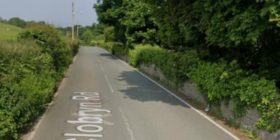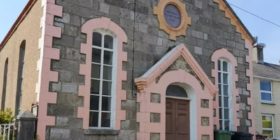Findings from historic World War I training site unearthed at Bodelwyddan Castle during water works at
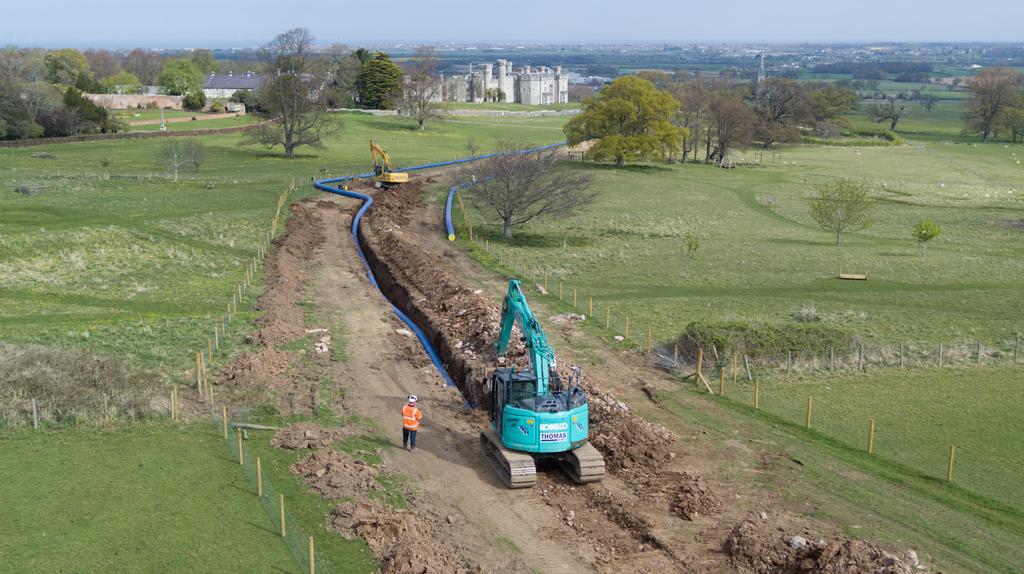
Historic artefacts dating back to the First World War have been unearthed at Bodelwyddan Castle as part of a major £6.9 million investment project.
Among the network of trenches used to train soldiers in World War I, fragments of old ammunition and military artefacts were identified by the team of archaeologists working alongside Welsh Water to upgrade drinking water pipes in the area.
During the era, the castle served as a recuperation hospital for wounded soldiers, and the grounds of the estate also served as a base for trench warfare training for soldiers at the nearby Kinmel Camp.
The not-for-profit company has been carrying out work to replace 1km of pipes in the area of Bodelwyddan, Kinmel Bay and Abergele.
Workers had to be extra careful when working in the grounds of the castle to not disturb the old training trenches, which can still be seen today and are of great interest to historians and archaeologists.
Heritage body CADW and CPAT (Clwyd Powys Archaeological Trust) were there to ensure correct procedures were followed before any work on the site could begin.
Aeon Archaeology carried out extensive surveys of the land and as ammunition was used during training, unexploded ordnance specialists Alpha Associates were also drafted in to ensure the area was clear and that nothing was disturbed.
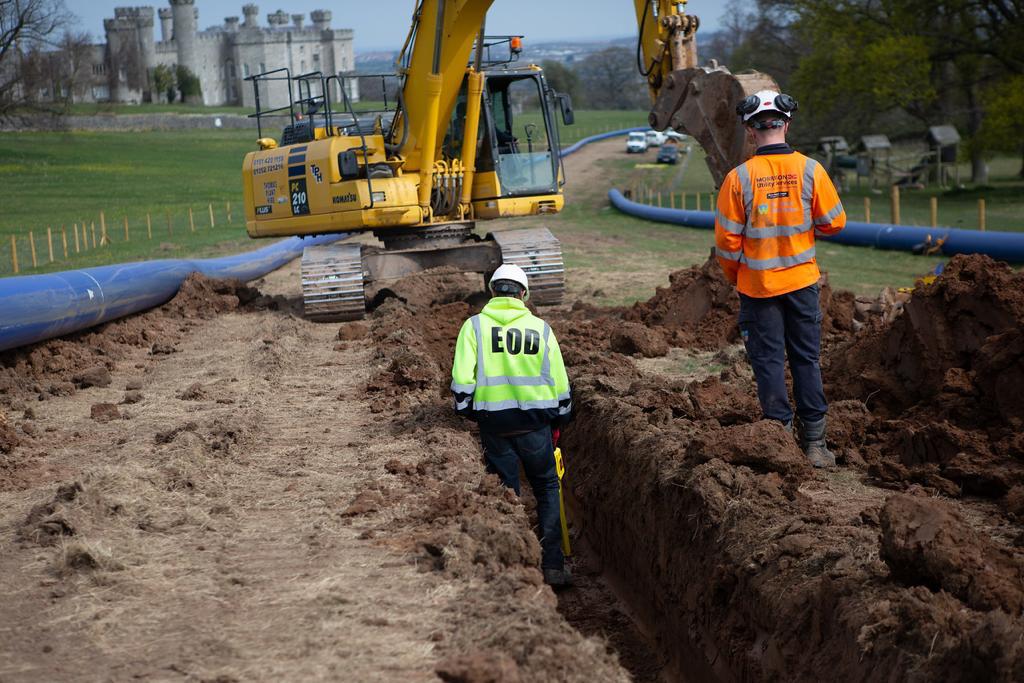
Richard Cooke, Senior Archaeologist at Aeon Archaeological, said: “This is the first time these World War I practice trenches have been investigated so extensively and they have given us an exciting window into this most fascinating part of our past.
“The work has shown that, despite ploughing, the bases of the trenches survive well and that they were not being excavated to full depth, but rather would have been reinforced with the addition of sandbags and upcast soil.
“As well as evidence of how the trenches were built, a number of artefacts and personal belongings of the would-be soldiers were found at the site.”
Artefacts found on the site have included iron nails and wooden duck-boards from the base of the trenches, as well as spent .303 rifle cartridges, barbed wire, and fragments of mills hand-grenades – including their ring-pulls.
In addition, a copper-alloy military uniform button, most likely from a cuff or lapel, was found within the base of a fire trench.
Although heavily degraded, the button appears to depict a beaver which was the insignia of the Canadian 3rd Engineers who were based at Kinmel Camp, during and immediately after the First World War.
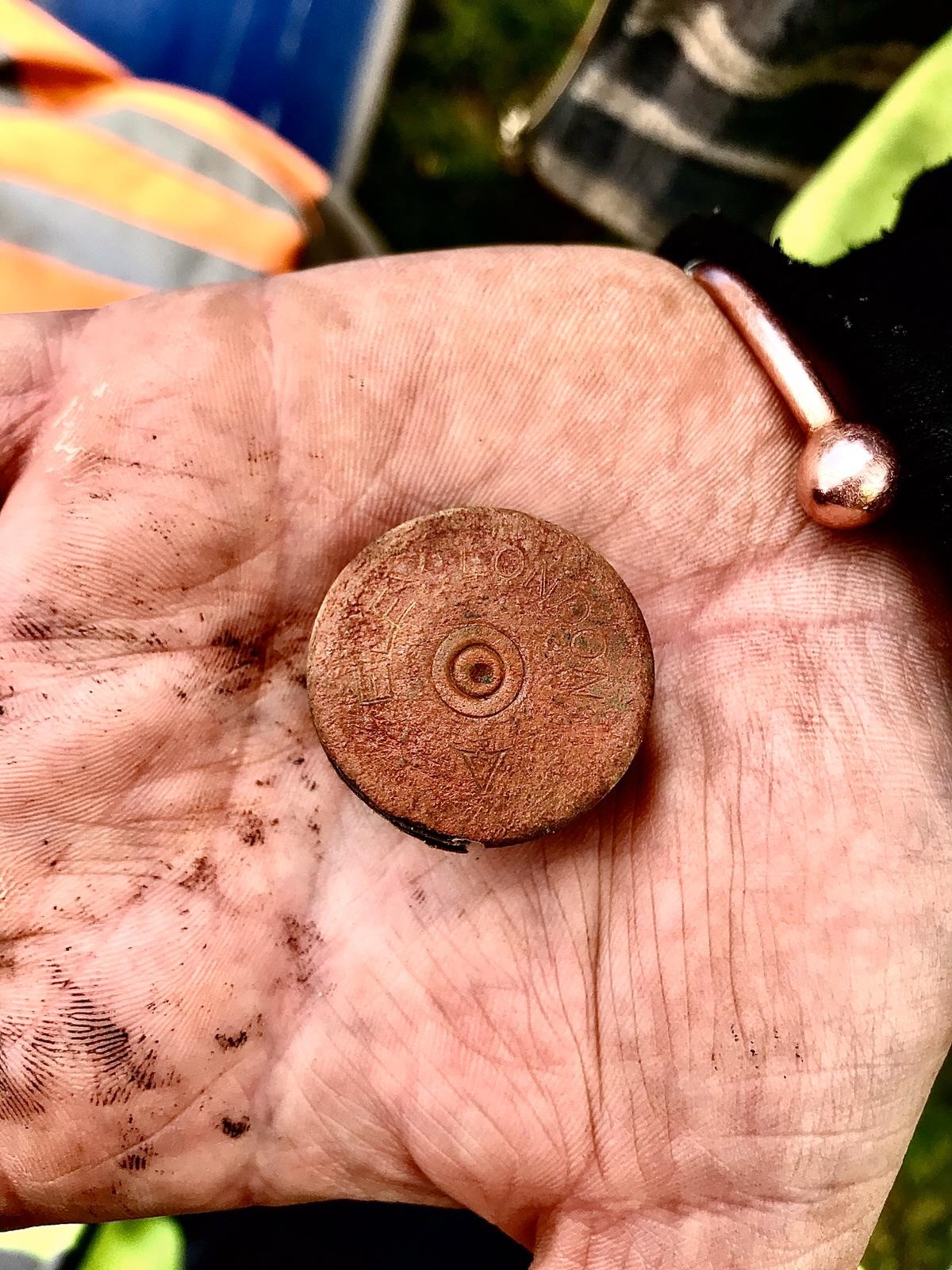
Mr Cooke added: “Other finds include the butt of a flare cartridge showing that they were practicing night-signalling, as well as the priming cap from an artillery shell, suggesting that field artillery guns were also being used at the site.
“One can only imagine the thoughts of these poor souls as they were being prepared for the horrors of trench warfare on the Western front.”
With support from archaeologists, a section of new water pipe has now been laid, with more to be installed over the coming month.
All work in the castle grounds is due to be complete by the end of June.
Denise Yale, Welsh Water’s Project Manager said: “Before we carry out work like this, we carry out a number of surveys on the land, but knowing the history of the castle grounds it was very important to make sure we preserved the historical significance of the area.
“It’s amazing what they have been able to find on the site after all these years – and that we have been able to work with the experts to ensure the area is preserved for decades more to come.”
Spotted something? Got a story? Send a Facebook Message | A direct message on Twitter | Email news@north.wales



